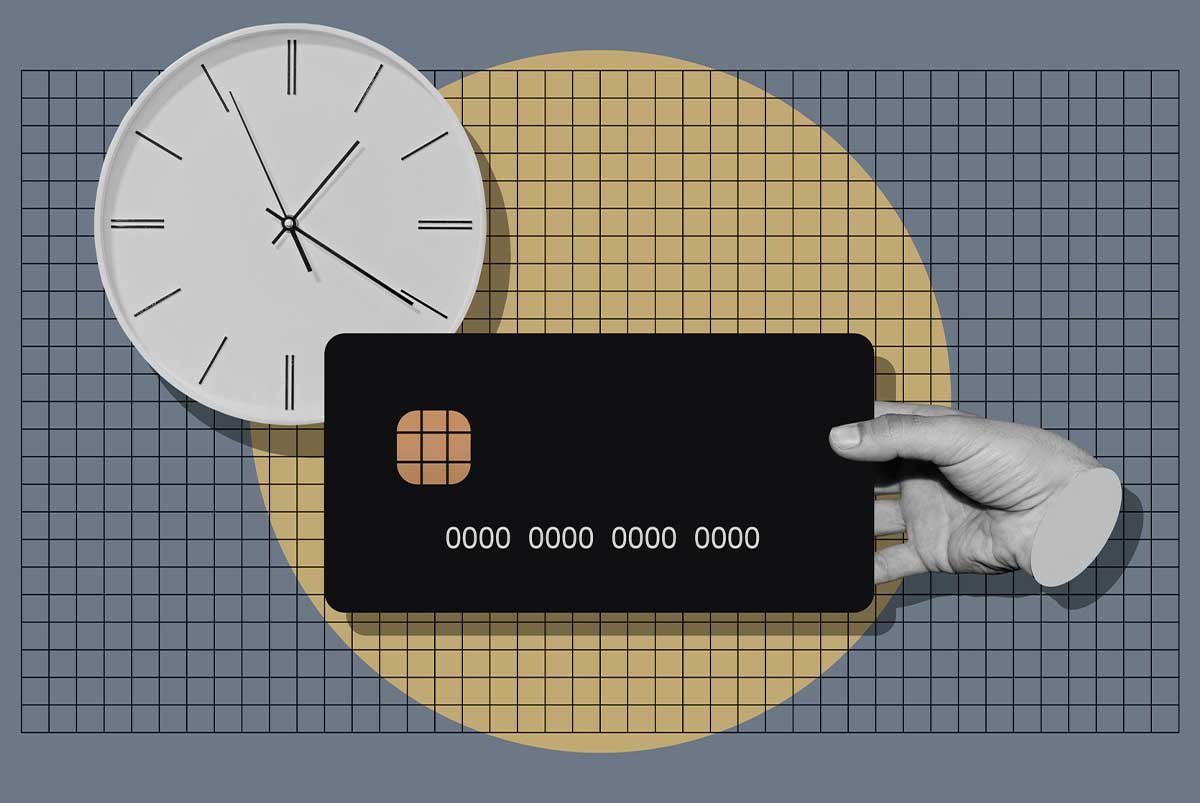Explore your mortgage options
Lots of people share a common dream: to live in a mortgage-free house or drive a car that’s fully paid for.
Let’s say you’ve got a car loan or personal loan, and you’ve been making on-time payments for several years. After crunching a few numbers, you realize that you can pay off the rest of the loan early. Sounds good, right?
But maybe you faintly remember hearing that paying off debt early can hurt your credit score. Is it true? Does paying off a loan early hurt your credit score?
We’ll show you what factors figure into your credit score and how certain loans affect those factors. Then, we’ll explore two scenarios – keeping up with your loan payments rather than paying off the loan early and paying off your loan ahead of schedule.
Ready for a Personal Loan?
Applying through Rocket LoansSM is fast and easy.
Checking your options won’t affect your credit score.
What’s Your Credit Score?
Your credit score is a three-digit number from 300 – 850 that signals to lenders how creditworthy you are. The higher your credit score, the greater your creditworthiness.
Five factors are used to calculate your credit score. Each factor accounts for a percentage of your credit score. The bigger the percentage, the more important that factor is.[1]
- Payment history: This makes up 35% of your credit score. It details how well you’ve paid your bills in the past and how well you pay them now. Making payments on time and in full are the most important parts of your credit score.
- Credit utilization: This makes up 30% of your credit score. It’s how much money you owe compared to the total amount of credit you can borrow. A low credit utilization ratio (aka owing less money) is good.
- Credit history length: This makes up 15% of your credit score. It’s a summary of how long your loan(s) or credit card accounts have been open. The longer an account has been open – and in good standing – the better.
- Credit mix: This makes up 10% of your credit score. It outlines the type of debt you have – revolving credit or installment loans. A mix of debt types is good for your credit score.
- New credit: This makes up 10% of your credit score. Having older credit accounts is better than having lots of new accounts opened in a short period, which can harm your credit score.
How Can Paying Off a Loan Early Hurt Credit?
In some cases, early loan repayment can cause your credit score to take a dip. But the change is usually temporary. Sometimes your credit score bounces back in as little as 1 – 2 months.[2]
Here are common reasons why paying off debt can cause a drop in your credit score:
You got rid of a type of credit
There are two main types of credit: revolving credit and installment credit.
Revolving credit is a fixed amount of money that’s available for you to borrow (think: your credit limit). You pay back the money you’ve borrowed (or make a minimum payment), and the money is available to borrow again. Credit cards and lines of credit, like a home equity line of credit (HELOC), work like this.
Installment credit is when you borrow a lump sum of money and pay it back in monthly payments. Car loans, mortgages, student loans and personal loans are all installment loans.
Your credit mix is 10% of your credit score. If you pay off your only installment loan or your only revolving credit account, you’ll sacrifice credit diversity.
You shortened your credit history length
Your credit history (which is how long you’ve held any credit accounts) is 15% of your total credit score. Your history isn’t something you should take lightly. When you pay off and close a loan you’ve held for a long time, you shorten the length of your credit history.
Why does the length of your credit history matter? Well, lenders like to see that you’re an established borrower with a looong track record of paying bills on time.
You increased credit utilization
Credit utilization is 30% of your credit score. Using a smaller percentage of your total revolving credit amount is good. (Installment loans, like car loans, personal loans or mortgages, generally don’t figure into your credit utilization ratio.)
Even if you pay off a revolving credit account, like a credit card, consider keeping the account open to maintain your total available credit amount. If not, your total available credit will shrink, and if you owe money on other accounts, your credit utilization ratio will shoot up.
It’s generally a good idea to use the accounts you keep open. If a revolving credit account becomes inactive, the lender may close the account.
You’re missing an opportunity to show creditworthiness
Remember, payment history is 35% of your credit score. Past payments figure into your payment history, but open accounts are more important than closed accounts.
When a debt is paid off and the account is closed, continued on-time payments are beside the point because there aren’t any payments to keep track of.
To continue demonstrating creditworthiness, consider keeping accounts open. Use them (even just a little bit) and make payments on time and in full.
Prepayment Penalties
Here’s another reason to think long and hard before paying off your installment loans early: prepayment penalties. Some lenders will charge fees if a borrower pays off their loan ahead of schedule. Usually, the prepayment penalty only applies during the first 3 – 5 years of the loan.[3]
Car loans, personal loans and mortgages are the three most common types of loans that could come with a prepayment penalty.
What About Paying Off a Car Loan Early?
An auto loan is, by and large, an installment loan. If your car loan is your only installment loan and you pay it off, guess what? You won’t have that beneficial credit mix we talked about. (FYI: The same goes for other installment loans, like student loans, mortgages and personal loans.)
Keep in mind that your credit mix only accounts for 10% of your credit score. And according to FICO® (Fair Isaac Corporation), opening a new account just to improve your credit mix will probably do nothing to raise your score.[4]
You should also consider the length of your credit history. If you’ve had your auto loan for a few years, the longer it’s open, the longer your credit history will be.
Remember: a record of on-time payments on a closed account won’t count as much as it would on an open account.
If you pay off the loan and close the account, your payment history might not be as robust as it would be if you kept the car loan open and continued to make payments.
Paying Off a Student Loan Early
Student loans don’t have prepayment penalties. We repeat: Student loans do not have prepayment penalties.
And while you don’t have to worry about prepayment penalties, you should take a lot of the same factors you would with an auto loan into account.
If there is a “downside” to paying off your student loans, it would be that it eliminates an opportunity to flaunt your creditworthiness to lenders. Paying loans on time and in full each month is good for your credit.
Paying Off a Mortgage Early
Like paying off any type of installment loan early, paying off your mortgage early has its pros … and its cons.
One potential downside is that you won’t be able to deduct future mortgage payments from your taxes. (FYI: You can deduct a prepayment fee as mortgage interest.)
Now, let’s discuss a pro! Consider the interest rate on your mortgage. Interest on a long-term mortgage can add up to a significant chunk of change. If you can afford to pay off your mortgage early, it may end up saving you thousands – even when taking prepayment fees and the loss of future mortgage interest deductions into account.
Speaking of the future, if you’re in the investment phase of your financial plan (or close to it), consider what the extra cash you use to pay off your mortgage could do on the stock market or in a retirement account(s). Maybe investing that extra money would make more sense for your financial future. To help you decide, break out a calculator and weigh the risks (and benefits) of investing.
When Is Paying Off Your Loan Early a Good Idea?
For some of us, paying off a loan early can be a savvy, money-saving move.
Let’s check out some reasons why you might want to pay off your loan despite the chance that your credit score could take a temporary dip.
It reduces your debt-to-income (DTI) ratio
DTI is what you owe (think: your monthly, fixed, recurring debt) compared to your gross monthly income.
Pro tip: Lower DTIs look good when you’re thinking about taking out a loan.
If paying off a loan reduces a big chunk of debt, it will have a large and positive effect on your DTI.
You’ll save money in interest and late-payment fees
Most loan payments include interest. Paying off a loan early will save you all the money you would’ve paid in interest.
Plus, paying off debt like credit card debt means you’re done running the risk of having to fork over any fees for late payments. (Woo hoo!) That’s even more money you’re saving each month.
We’ll give you 10 seconds to think of all the things you could do with that extra cash. From building an emergency fund to buying pricey ensembles on Depop, the sky’s the limit.
You’ll gain peace of mind
Paying off a loan may not make you debt-free, but it’s one less bill to worry about. And it doesn’t hurt that you get to revel in a sense of accomplishment over making good on your obligation to pay back what you borrowed. Yay, you!
Consider Your Circumstances
Loans are a lot like life (or your Spotify Wrapped list); there are no hard-and-fast rules for what’s right – or the right thing to do. Whether you’re leaning toward paying off a loan early or keeping up with your regularly scheduled payments, weigh the pros and cons of each option and make the best choice for you – and your wallet.
Get Prequalified for Loans from $2,000 to $45,000
Rocket LoansSM offers personal loans from $2,000 – $45,000. From debt consolidation to unexpected expenses, we’ve got you covered.
Checking your options won’t affect your credit score.
The Short Version
- Paying off an installment loan early can temporarily hurt your credit, but continuing to make on-time payments will likely have a positive effect
- Paying your loan early can be good for your debt-to-income (DTI) ratio and can save you money in interest and late-payment fees
- Depending on your circumstances, paying off your installment loan early might be worth the small dip in your credit score
FICO®. “What’s in My FICO® Scores?” Retrieved December 2021 from https://www.myfico.com/credit-education/whats-in-your-credit-score
Experian™. “How Long After You Pay Off Debt Does Your Credit Score Improve?” Retrieved December 2021 from https://www.experian.com/blogs/ask-experian/how-long-after-you-pay-off-debt-does-your-credit-improve/
Consumer Financial Protection Bureau. “What is a prepayment penalty?” Retrieved December 2021 from https://www.consumerfinance.gov/ask-cfpb/what-is-a-prepayment-penalty-en-1957/
FICO®. “How to Repair Your Credit and Improve Your FICO® Scores.” Retrieved December 2021 from https://www.myfico.com/credit-education/improve-your-credit-score




